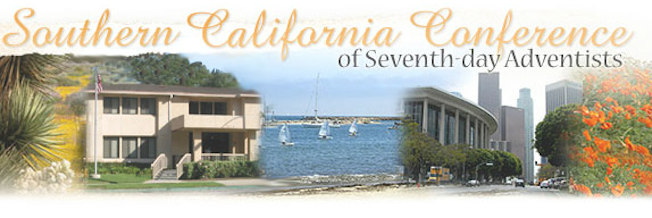 Depending on one's faith tradition, different images come to mind when one hears the word scripture. The fact is, we live in a religiously pluralistic world, and can’t assume that our definition of scripture is monolithic. For many, scripture applies to a set of words when and only when these words trace an intimate and ongoing relationship between a community and the transcendent (or one who is transcendent).”(1) For Hindus, scripture is the Bhagavad-Gita. For Jews, it is the Tanach; Buddhists, the Trip taka. Islam believes that the Holy Qur’an is sacred scripture. Christians consider the Holy Bible scripture, while Sikhs and the Baha’i believe that the Adi Granth and Kitab-I-aqdas are scripture. More examples could be listed, but the point is clear, the word scripture has many meanings.
Historically, protestants viewed Scripture as the combination of the Old and New Testaments (excluding the Apocrypha). However, some denominations have developed a different locus for their definition. Latter-day Saints (LDS) accept the “general accuracy” of the modern day text of the Bible, but they also believe that it is incomplete and contains errors. In LDS theology, many of these lost truths were restored in the Book of Mormon, which Mormons hold to be “divine scripture and equal in authority to the Bible.”(2) Similarly, Catholics do not believe that God has restricted His authoritative communication and rule of faith to the Bible alone. They hold that “God's Revelation comes to us through the Apostolic Tradition and teaching authority of the Church [i.e. the Magisterium(3)].”(4)
Depending on one's faith tradition, different images come to mind when one hears the word scripture. The fact is, we live in a religiously pluralistic world, and can’t assume that our definition of scripture is monolithic. For many, scripture applies to a set of words when and only when these words trace an intimate and ongoing relationship between a community and the transcendent (or one who is transcendent).”(1) For Hindus, scripture is the Bhagavad-Gita. For Jews, it is the Tanach; Buddhists, the Trip taka. Islam believes that the Holy Qur’an is sacred scripture. Christians consider the Holy Bible scripture, while Sikhs and the Baha’i believe that the Adi Granth and Kitab-I-aqdas are scripture. More examples could be listed, but the point is clear, the word scripture has many meanings.
Historically, protestants viewed Scripture as the combination of the Old and New Testaments (excluding the Apocrypha). However, some denominations have developed a different locus for their definition. Latter-day Saints (LDS) accept the “general accuracy” of the modern day text of the Bible, but they also believe that it is incomplete and contains errors. In LDS theology, many of these lost truths were restored in the Book of Mormon, which Mormons hold to be “divine scripture and equal in authority to the Bible.”(2) Similarly, Catholics do not believe that God has restricted His authoritative communication and rule of faith to the Bible alone. They hold that “God's Revelation comes to us through the Apostolic Tradition and teaching authority of the Church [i.e. the Magisterium(3)].”(4)
Seventh-day Adventists have been accused of elevating the writings of Ellen G. White to the same authority as Scripture. While there are some within the church who have mistakenly done this, her own testimony and the official position of the church clearly state otherwise. She wrote: “The word of God is sufficient to enlighten the most beclouded mind, and may be understood by those who have any desire to understand it.”(5) “The Word of God [is] the rule of your faith and practice.”(6) “The Lord . . . has not given any additional light to take the place of His word.”(7) “The written testimonies are not given to give new light, but to impress vividly upon the heart the truths of inspiration already revealed.“(8) The Seventh-day Adventist Church officially teaches that “Her writings . . . provide for the church comfort, guidance, instruction, and correction. They also make clear that the Bible is the standard by which all teaching and experience must be tested.”(9)
What is scripture as defined by the Bible? The word scripture (graphe) appears 52 times in the New Testament (in the KJV), and is found either in the singular or in the plural form.(10) The definition of scripture is fairly consistent in most concordances: “express by written characters--to write down,”(11) “that which is written, the writing,”(12) “a writing, book, epistle”(13) “to write.”(14) This meaning can be seen in a number of Bible versions:
- “Every scripture inspired of God . . .” (KJV; NKJV; NASB; ASV; etc.)
- “Every holy Writing which comes from God . . .” (Basic English Bible; Darby Bible)
- “Every Writing [is] God-breathed . . .” (Young’s Literal Bible)
- “All that is written in the holy writings comes from the Spirit of God. . .” (WE)
- “All scripture written by the inspiration of the Holy Spirit . . .” (Lamsa)
- “Everything in the Scriptures is God's Word. . . (CEV)
Interestingly, scripture (graphe) in 2 Timothy 3:16 is a singular noun.(15) And in the singular, it “has reference to a particular passage (Mk 12:10; Lk 4:21; Jn 2:22; Rom. 4:3; Gal. 3:8). Whereas, in the plural, it refers to the ‘whole’ (Matt. 21:42; John 5:39; Acts 17:11; etc.).”(16) Greek scholar J.W. Roberts concurs by saying, “[I]n every N.T. use the singular term means a single passage of scripture.”(17) Therefore, from a lexical standpoint, scripture in 2 Tim. 3:16 is very specific and refers to single, succinct and short written passages. This doesn’t negate that 2 Timothy 3:16 (by implication) also refers to the Scriptures in a broader sense as well. However, the significance of the singular in 2 Timothy 3:16 should not be overlooked. In combination with our first study (which showed that “pasa” means “every”), Paul narrows down the definition of scripture to short phrases, passages, and even individual words.(18) Why is this important? Some theologians have used phrases such as “Scripture as a whole,” or “the whole Scripture.” This has the tendency of diluting or weakening the directive of distinctive passages and doctrines.(19) The implication is, that if 2 Timothy 3:16 refers to “Scripture in general,” don't be too concerned with specifics. However, when Paul refers to scripture, he refutes this understanding, showing that even precise, concise passages and words can be trusted. How else could he go on to say that “Scripture . . . is profitable for doctrine, for reproof, for correction and instruction”?
Here is an overview of the 52 references of graphe in the New Testament, revealing 15 significant points:
“Scripture” is used in a general sense, referring to the entire Old Testament (20):
Matt. 22:9 “You do err, not knowing the scriptures”
John 5:39 “you search the scriptures . . .”
In one sense, scripture is used by New Testament writers to include the entire Old Testament. This definition of scripture(s) does little to help us narrow down what that includes. However, it does tell us that the scriptures are a collection of writings that are used to gain knowledge of God, salvation, etc.
“Scripture” is used in a more limited sense, but still covering large sections/themes:
Matt. 26:56 “all this was done that the Scriptures of the prophets might be fulfilled.”
Luke 24:2 Jesus expounded “in all the Scriptures the things concerning Himself.”
There are times when N.T. writers used “Scriptures” to refer to general topics or themes. These sections would include the Messianic prophecies or other fulfilled prophecies. For example in John 20:9, the disciples did not understand yet the Scriptures concerning Christ’s death and resurrection. And in Acts 17:2-4, Paul reasoned out of the Scriptures concerning the suffering, death and resurrection of Christ.
“Scripture” is used in a special sense, quoting smaller, concise, individual passages:
Jn. 19:28 “that the scripture might be fulfilled, saith “I thirst . . . Vessel full of vinegar”
Ps. 69:21 “in My thirst they gave me vinegar to drink”
Jn. 19:36 “the Scripture might be fulfilled, a bone of Him shall not be broken”
Ps. 34:20 “He keepeth all His bones: not one of them is broken”
“In many instances “the Gospels restrict the meaning of 'Scripture' to individual passages within the OT with such terms as 'this' and 'another.' This restricted usage of Scripture is safeguarded by its contexts and special pronouns.”(21) In fact, “Scripture” can even mean one Greek word- “I thirst” (dipsao- Diyw; John 19:28 quoting Ps. 69:21). This reduction in meaning helps us see that scripture includes the very words and phrases that were written.
“Scripture” is referred to as the “word of God”:
Matt. 22:31, 32 “you err, not knowing the scriptures. . . which was spoken unto you by God saying . . .”
John 10:35 “The word of God came, and the scriptures cannot be broken.”
Daniel recognized that the book of Jeremiah was the “word of the Lord” (Dan. 9:2) “David expressed the conviction that his words originated from the Holy Spirit (2 Sam. 23:2). . . When Joel the ‘prophet’ (Acts 2:16) spoke, it was ‘God’ speaking (v. 17). Likewise ‘God spoke by the mouth of His holy prophets from ancient time’ (Acts 3:21).”(22) More than 300 times the Old Testament uses phrases that “perceived itself as deriving from God . . . the ‘Word of God.’”(23) “When the New Testament writings were later included with the Old Testament as part of ‘all scripture’ [1 Tim. 5:18 quotes Lk 10:7; Peter refers to Paul’s epistles as “Scripture”- 2 Pet. 3:16], it was natural to conclude that they too were ‘inspired by God’.” (24)
“Scripture” includes the “writings of the prophets":
Rom. 1:2 ". . . by His prophets in the Holy Scriptures, concerning His Son"
Rom. 16:26 "The Scriptures of the prophets" (25)
2 Pet. 1:20 "no prophecy of scripture . . ." (26)
The New Testament uses phrases like “it has been written by the prophet” (Matt. 2:5) or “all things which are written through the prophets about the Son of Man” (Lk 18:31). Paul speaks about the promise given “through His prophets in the holy Scriptures” (Rom. 1:2; see also Rom. 16:26). “The term ‘prophecy’ refers to that which was written by the inspired ‘prophets who prophesied’ (1 Pet. 1:10).
Jesus explained to His disciples on the road to Emmaus ‘all the Scriptures,’ namely, ‘Moses and the prophets’ (v. 27).“The phrase ‘all that the prophets have spoken’ seems to be identical with the phrase ‘all the Scriptures,’ expressing the totality of the Bible.”(27)
“Scripture” is referred to by the phrase “It is written”:
Lu. 24:45, 46 “That they might understand the scriptures, and said unto them, ‘It is written . . .”
Rom. 15:4 “written for our learning, that we through patience . . . Of the scriptures"
“It is written” (from the Greek grapho) is a verb of the word “Scripture” (graphe).(28) It basically stands for the same thing, and is usually seen referencing the “writings” of the Old Testament. “Jesus appealed to the Bible of His day, the OT, as the word of ultimate authority when He met the Devil’s temptation in the wilderness. Jesus resisted the Devil by stating, ‘It is written,’ quoting Scripture (Matt. 4:4,7,10). . . Jesus and the apostles repeatedly appealed to ‘Scripture’ as the Word of God which is 'written.'”(29) As already mentioned, “It is Written” refers to a number of specific subjects, and among these are:
- Geography (Matt. 2:5 quoting Micah 5:2- “Bethlehem in the land of Judah”)
- Marriage laws (Mark 10:4,5 quoting Deut. 9:6- “Moses wrote a bill of divorcement”)
- Conduct in God’s House (Mark 11:17 quoting Isaiah 56:7- “My house will be . . . A house of prayer”)
- Life, death and resurrection of Christ (Lk 1:3- “write unto you. . . That you may know of a certainty”)
- Historical narratives (1 Cor. 10:6-11- quoting Numbers- “they are written for our admonition”; Rom. 11:2 quoting 1 Ki. 19:10- “the scripture says of Elijah. . .”)
- Specific instruction about livestock (1 Cor. 9:9 quoting- “do not muzzle an ox while it is treading. . .")
- Condition of humanity (Romans 3:10- “as it is written: ‘there is no one righteous’. . .”)
“Scripture” points to and testifies of Jesus:
John 5:39 “Scriptures . . . testify of Me”
John 20:31 “these are written (grapho) that you may believe that Jesus is the Christ”
The focus of the Bible is Jesus. While looking for writings that should be included in Scripture, the underlying theme will be Jesus Christ. There are some books where this is a bit harder to delineate, since there is no DIRECT reference to the Messiah (Esther, Nahum, Obadiah, Song of Solomon, to mention a few). However, we should see implied overtones of Jesus in all these books. The theme of “Scripture” points to a Messiah that will save humanity from sin, and restore the image of God in humanity. It points to His work in the redemption including His birth, death, resurrection and ministry in Heaven.(30)
“Scripture” is referred to as “the law”:
Luke 24:27 “Moses and all the prophets . . In all the Scriptures”
Luke 2:23 “It is written (grapho) in the law of the Lord . . .”
Luke 10:26 “what is written (grapho) in the law?”
The scripture(s) include the books of Moses- which are referred to as the “law”. There are a number of references that say “in the law and the prophets,” “in the law,” “the law of Moses,” etc. These phrases are called “Scripture”. It is interesting to recognize that Jesus understood the “Law” included even the smallest elements of the written language. Not “one jot or one tittle shall pass from the Law. . .” (Matt. 5:18).
“Scripture” is unified--doctrinally, thematically, historically and typologically:
John 10:35 - “and the Scripture cannot be broken” (31)
As one delves into the study of scripture, he or she is almost forced to confess the amazing unity that exists in the doctrines, themes and history within it’s pages. Theologian David Ewert has noted- “Since God is the Lord of history. . . We can expect His earlier revelations to anticipate the later. . . There are a great many prophecies in the OT that are fulfilled in the NT. . . The great truths of the Bible, such as sin, redemption, hope, and many others, take their rise in the OT and find their fuller development in the New. This is sometimes called ‘the-unity-of-ideas’ approach to the Scriptures. The thematic approach takes us even further and seeks to show the unity of the two Testaments by tracing their underlying themes.”(32) The Scriptures “though written generations apart. . . do not contradict each other.(33) The two testaments are one, as God is one. . . The Old Testament serves as foundation for the New. It provides the key to unlock the New, while the New explains the mysteries of the Old.”(34)
“Scriptures” great themes are the love of God and salvation of man through Jesus:
1 Cor. 15:3 “Christ died for our sins according to the Scriptures”
The under girding theme of Scripture is how God through Christ came to the rescue of fallen humanity, and bought him back through the plan of salvation. “The theme of God’s love, particularly as seen in Christ’s sacrificial death on Calvary--the grandest truth of the universe--is the focus of the Bible. All major bible truths, therefore, should be studied from this perspective.”(35)
“Scripture” provides comfort and hope through its written promises:
Rom. 15:4- “through patience and comfort of the Scriptures”
This is a more subjective element to our understanding of the word graphe. Obviously, there are many religious “holy books," whose adherents claim spiritual benefits through its writings. However, this is not an objective, externally verifiable reason to include a writing as “Scripture.” Nevertheless, it is a confirming reason, which can be known internally, and produces further assurance that the objective claims are valid.
“Scripture” records God’s providence's and supervision over the affairs of man:
Matt. 4:4 “it is written, man shall not live by bread alone, but by every word . . . of God”
Acts 17:26 "He hath determined the times before appointed, and the bounds of their habitation”
Luke 4:10 “it is written (grapho), He will give His angels charge over you, to keep you.”
God is involved in the affairs of the nations, and in providential control of human affairs. The book of Daniel makes it clear that God sets up kings and removes them. He uses pagan rulers to overrule the sinful behavior of His people. The “scriptures” reveal God’s interaction with humanity as through a “wheel within a wheel”. Above the complex play and interplay of human events, ultimately God is working to further His will and His plans. Therefore, although there may not be a direct references to God in some of the Scriptures- we can clearly see His providence through the events that transpire.(36)
“Scripture” includes “the Psalms”:
Luke 24:44- “written in the law of Moses, and in the prophets, and in the Psalms, concerning Me.”
The book of Psalms is probably quoted more in the New Testament than any other Old Testament book. It is referred to over and over as scripture.
“Scripture” includes a gospel book:
1 Ti. 5:18 “The scripture says"
Lk 10:7 quoted- “the laborer is worthy of his reward”
In 1 Tim. 5:18 Paul quotes Jesus in the book of Luke.(37) This is significant, because the scriptures include at least one gospel.
“Scripture” includes the writings of Paul (38):
2 Pet. 3:16 “in his [Paul's] epistles . . . As also in the other scriptures"
“Peter’s use of ‘Scriptures’ places Paul’s writings on a level with other inspired Scripture.”(39) “The manner of referring to Paul’s letters as ‘Scriptures’ alongside the OT indicates that they had been recognized as being on the same level. They were both viewed as being of divine origin and authoritative.”(40)
In conclusion, scripture (as used in the New Testament) is a multi-faceted word that has a broad range of meanings. It can refer to the entire Old Testament, smaller themes of prophetic fulfillment or in a special sense, quoting individual passages and small units of writing. Scripture is called “the Word of God,” the writings “of the prophets,” “the Law” (“law of Moses“) and is also designated by the phrase, “it is written." The Scriptures record God’s providence in the affairs of human history and present the great themes of the love of God through Jesus Christ for lost humanity. The history and doctrines of Scripture are seen as a “golden thread”(41) that unifies the writings into a single book. The focus of Scripture is Jesus Christ, and it includes the gospels and writings of Paul. While we have looked at scripture lexically, we haven’t yet shown how these different words, passages and phrases are connected together to create the whole. In the next article, we will discuss how the Scriptures are joined internally as a unit and thus become sola-prima scriptura (i.e. the canon).
See footnotes.

































